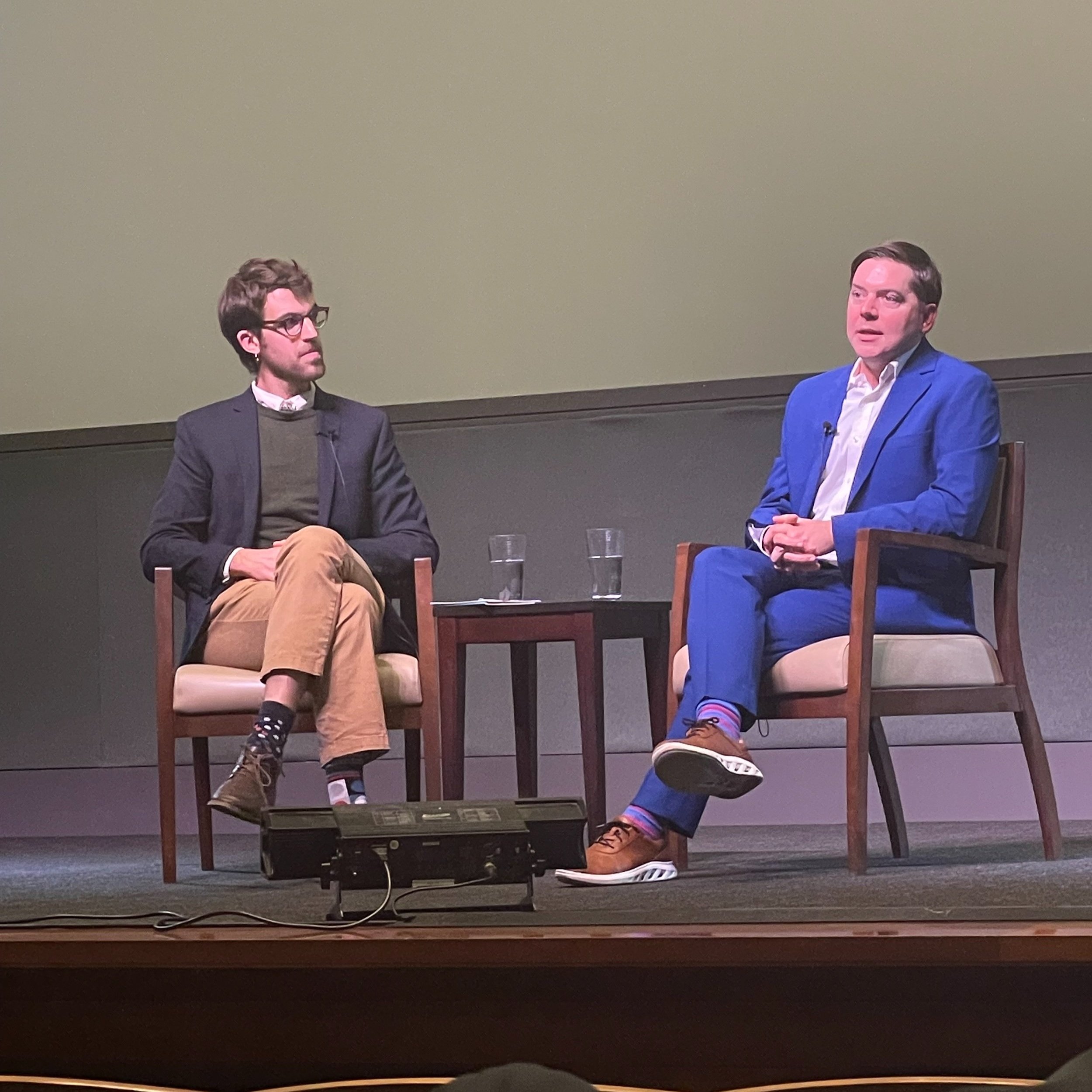By Karli Korszeniewski
The pioneering 1990 film “Paris is Burning,” which documented drag balls in New York in the 1980s, opened the door for queer possibilities and cinema, says Lucas Hilderbrand, a film and media studies professor at UC Irvine.
“It wasn’t until the last 15 years that we’ve begun to see more representation,” Hilderbrand recently told a UC Santa Barbara audience. “That wouldn’t have existed or gotten distribution or greenlit without Paris is Burning.”
In collaboration with the UCSB Art, Design and Architecture Museum’s exhibition “Please, Come In...” the Carsey-Wolf Center screened Paris is Burning as a part of its Revisiting Classics series. The event included a post-screening conversation with Hilderbrand and Graham Feyl, a Ph.D. student in the History of Art and Architecture department.
Hilderbrand is the author of “Paris is Burning: A Queer Film Classic,” as well as “Inherent Vice: Bootleg Histories of Videotape and Copyright,” and most recently “The Bars Are Ours: Histories and Cultures of Gay Bars in America, 1960 and After.”
He first saw Paris is Burning as a teenager. “It was such a revelation as a film,” he said. “And really sort of opened up a world of queer possibility to me.”
Directed by Jennie Livingston, the documentary explores the mid-to-late 80s drag ball culture in New York City, in which many transgender and queer people of color found community in competitive balls, where they showcased their talent in different categories, such as voguing or fashion. The film is revered for showing the beauty of queer life in the midst of racism, transphobia, homophobia, poverty, and the HIV/AIDS crisis by screening intimate interviews and footage of the drag contests.
With its oppressive themes and tragic events, many people find the film quite saddening, Hilderbrand said. Audiences have criticized the film for not sitting with the mourning long enough. But to him, that’s not the film’s focus.
“For me, it’s about the ways in which people in the film self-define and find innovative ways to live in spite of, and in resistance to, challenges,” he said. “It’s about finding and making a livable life on one’s own terms and living as who you are and you’re meant to be in spite of whatever society or dominant culture thinks.”
Two young boys featured in “Paris is Burning.” Photo still by Flickr
Director Livingston and film editor Jonathan Oppenheim had different goals when approaching this project, Hilderbrand said. The director wanted the film to have a political edge, whereas the editor wanted the audience to have an emotional experience. Paris is Burning is the product of their two views coming together.
Winning numerous awards and becoming one of the first popular documentaries, the film greatly impacted audiences and continues to do so today. It was the first introduction to the Ball world for many people, who then found their way to this community.
But Hilderbrand said that many of those featured in the film didn’t feel they benefited from the exposure. “The people who were actually in the film itself often felt like they didn’t necessarily benefit from being in the film. So whether it’s that they didn’t really make any money being in it, or exploited in a particular way, their visibility made them vulnerable.”
The impact of Paris is Burning continues through its influence in popular culture, particularly in the reality TV series “RuPaul’s Drag Race” and the drama TV series “Pose,” which became hits decades later.
“It’s a complicated film because it didn’t necessarily improve the lives of the people in the film,” Hilderbrand said. “But it actually made the world a better place through its existence.”
When doing research for his book “Paris is Burning: A Queer Film Classic,” the scholar was struck by a number of clips of same-sex intimacy and affection between men of color that he hadn’t noticed before. While the film never comments on it directly, Hilderbrand says these moments serve to claim space and the right to express public affection.
Graham Feyl of UCSB’s History of Art and Architecture department and UC Irvine film professor and author Lucas Hilderbrand discuss the classic documentary film “Paris is Burning” at the Pollack Theater.
His most recent book “The Bars Are Ours: Histories and Cultures of Gay Bars in America, 1960 and After,” focuses on the history of gay bars and how they served as the medium for allowing debates within LGBTQ community—addressing racism, generational divides, and class differences.
The Carsey-Wolf Center’s Revisiting the Classics series continues with a January 18th screening of the 2023 documentary “Still Film,” featuring a post-screening conversation with filmmaker James N. Kienitz Wilkins.
Karli Korszeniewski is a second-year Film and Media Studies major at UC Santa Barbara. She is a Web and Social Media Intern with the Division of Humanities and Fine Arts.



